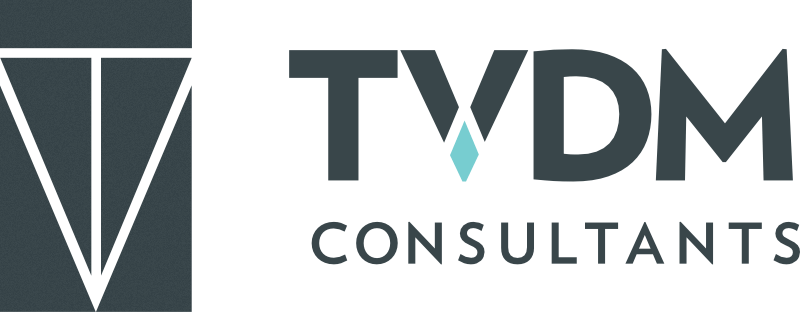Fostering Relationships | Managing Agents and the CSOS
Engagement with the Acting Chief Ombud
08 November 2024 | Hendrik Hoffman
On 8 October 2024, I had the opportunity to meet with the Chief Ombud of the Community Schemes Ombud Service (CSOS), Kedibone Phetla, and her team.
This meeting aimed to address key issues impacting the sectional title industry and to explore opportunities for collaboration with the Ombud’s office to improve industry practices, specifically in areas such as transformation and the relationship between managing agents and CSOS.
Transformation in the Industry
A significant portion of the discussion focused on the transformation initiatives within the community schemes sector. I raised concerns regarding the current Executive Managing Agent (EMA) program, noting that while several individuals have been trained, many are not getting work opportunities.
I proposed an alternative approach, suggesting that CSOS could work with smaller managing agents to create internship programs, offering practical training while covering the costs. This would not only ensure that trainees receive hands-on experience but would also support smaller managing agents with additional resources.
The Chief Ombud’s team responded positively, acknowledging that a mentorship and incubation model is already being trialled with certain companies. This program provides trainees with stipends and laptops, and it includes both practical training and accredited learning.
The initiative, which started in August 2024 with 21 learners, shows promise, and it is clear that CSOS shares a vision of transformation through real-world experience and mentoring. CSOS has also signalled plans to expand this program in the future, with further cohorts planned for next year.
Improving Engagement with Managing Agents
Another key topic was the often strained relationship between CSOS and managing agents. Feedback from industry stakeholders suggests that managing agents often feel overlooked or underappreciated. I emphasized that fostering stronger relationships between CSOS and managing agents could greatly benefit the industry.
Not only could this improve trust and communication, but managing agents could also become valuable allies in promoting CSOS services and initiatives to their clients, thus saving CSOS marketing costs and expanding its reach.
The Ombud’s team agreed, recognizing the importance of better, more direct engagement with managing agents. They are exploring ways to conduct targeted training sessions and engagements specifically for managing agents, outside of the current reliance on broader industry bodies like NAMA. This more direct approach could prove more fruitful in building long-term, productive relationships.
Training and Communication
A recurring theme throughout the meeting was the need for more focused, practical training for both managing agents and owners. I expressed frustration that many of the existing training programs felt repetitive and failed to address the real issues faced in the industry. For example, practical training on handling disputes between owners or navigating complex trustee meetings is often lacking.
CSOS agreed that they need to enhance their training programs and are committed to gathering more input from the industry to ensure that future sessions are problem-focused and add real value. They also plan to strengthen the dissemination of training opportunities to ensure a broader audience of owners and trustees, not just managing agents, are reached.
The Ombud raised a concern regarding the lack of diversity in training session attendees, pointing out that it is often the same individuals participating. This suggests that many managing agents are not passing on invitations to their clients. In response, I highlighted that this issue stems from the strained relationship between CSOS and managing agents.
As a managing agent myself, I must admit that I rarely make the effort to read or share their communication. By focusing on topics provided by managing agents and working to rebuild the relationship, CSOS can regain our trust. This would encourage us to share their training invitations with clients, which is ultimately the best way to promote their sessions.
The Role of Private Mediation and CSOS Orders
The discussion also touched on the role of private mediation in the community schemes space. While there is increasing movement towards private mediation to resolve disputes, I stressed that CSOS should view this as a complementary service rather than a competitor.
This topic also relates to a recent article published by CSOS, which alleged that various individuals are undermining the role of CSOS. Personally, I found this wording offensive, and the CSOS team acknowledged that the phrasing was not ideal. The article gave the impression of sour grapes between CSOS and the industry, which is not conducive to fostering collaboration and trust.
Until CSOS addresses its backlog and improves its processes, private mediation will remain a necessary option for many. I also suggested that clearer communication on the enforcement of CSOS orders would help build trust in the system, as many managing agents are unclear about the next steps once an order is issued.
The Chief Ombud’s team acknowledged these concerns and is working on improving both the quality of their adjudication orders and the clarity of their communication around enforcement.
Conclusion
Overall, the meeting was constructive, with both parties sharing a commitment to improving the sectional title industry. The Ombud’s office demonstrated a clear willingness to listen to industry feedback and to implement changes that will support transformation, enhance training, and build stronger relationships with managing agents.
For managing agents, this signals an opportunity to get more involved in shaping the future of the industry. Whether through participating in the CSOS’ upcoming transformation initiatives or engaging in direct communication with the Ombud’s office, there are numerous ways to contribute to a stronger, more professional community schemes sector.
Final Thoughts
There are truly remarkable individuals at CSOS, and I was pleasantly surprised by the enthusiasm shown by some members during our meeting. They were open to my suggestions and proposals, which was encouraging. However, I also sensed a degree of ego in the notion that, as a government entity, CSOS sees itself as the ultimate authority in the industry.
As one of their fiercest critics, this was my second meeting with them. Following our previous engagement, I did notice improvement in their financial department, although there’s still a long way to go. Unfortunately, not much progress has been made in other areas.
It has been a rollercoaster journey, but I’ve consciously chosen to remain positive, hoping that something meaningful will come from this meeting. The responsibility now rests with CSOS to deliver on the discussions we had. However, I must emphasize that this is the last time I will extend my support and optimism.
Should CSOS fail to act on the matters raised, I won’t allow myself to hold on to false hope any longer. Let’s remain hopeful (for now) that the much-needed changes will materialize and that CSOS will embrace better collaboration with the industry.
Should you rather opt for internal / alternative dispute resolution, contact us for our IDR service offering today on 061 536 3138 or at info@tvdmconsultants.com for community scheme related advice.
About the Author:
Upon completion of his BCom degree in Business Management at the University of Pretoria, Hendrik embarked on a career in the Sectional Title Industry. With more than ten years of experience under his belt, he recognized a pressing need for enhanced transparency, streamlined processes, and superior service through the incorporation of technology. This prompted him to establish Rise Property Solutions in 2018. Hendrik’s extensive knowledge and proficiency in Sectional Title matters have earned him invitations to numerous radio shows, where he has served as a valuable guest speaker. He has also established the largest Facebook Group in South Africa dedicated to Sectional Title Living, further cementing his reputation as a leading Managing Agent in the industry.


